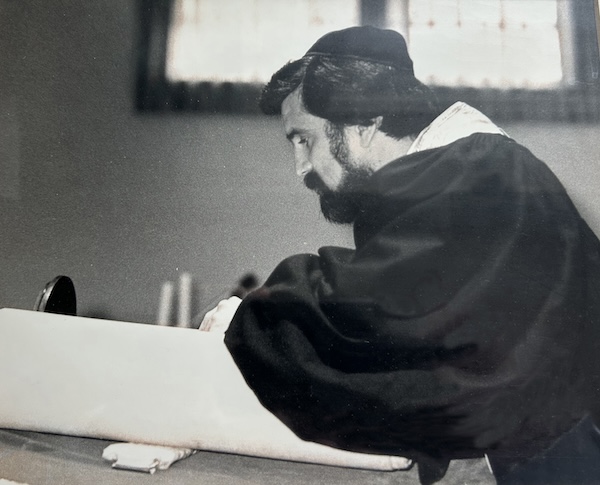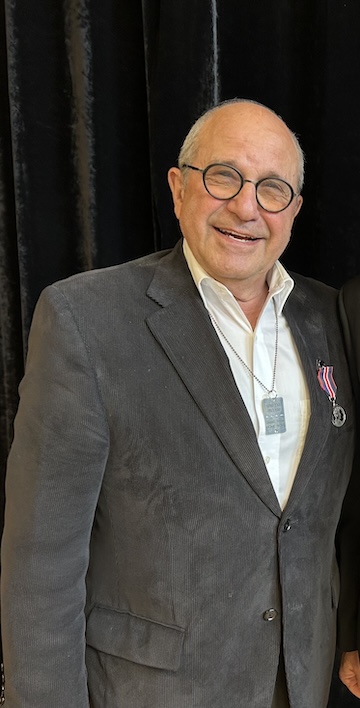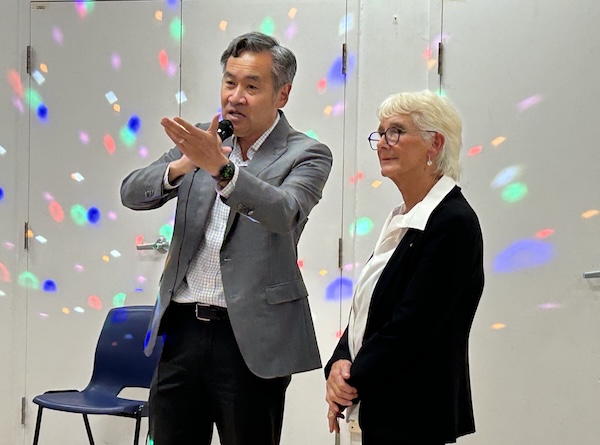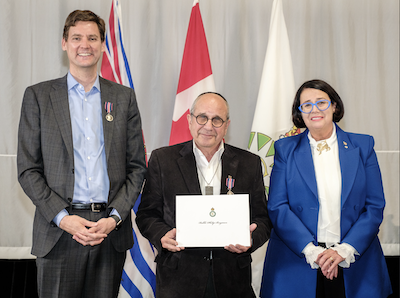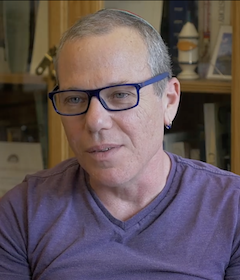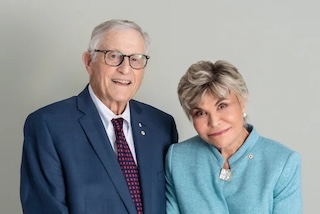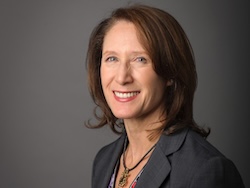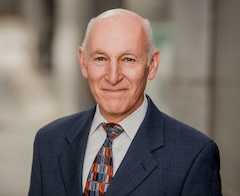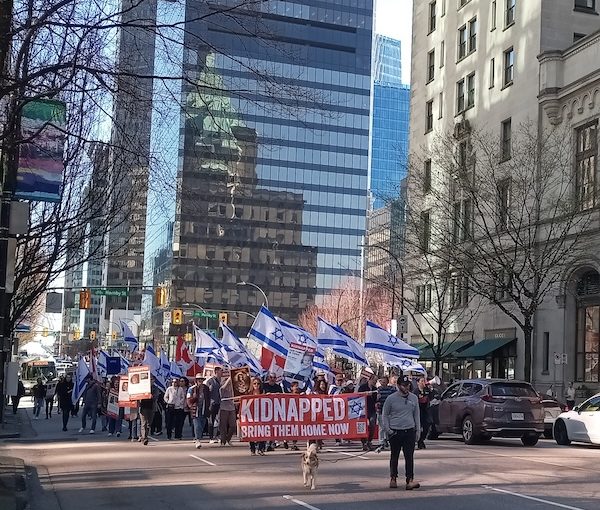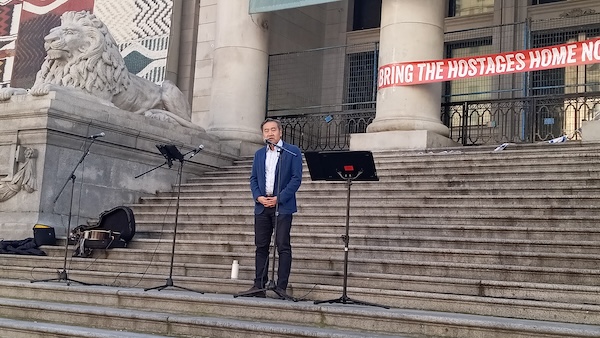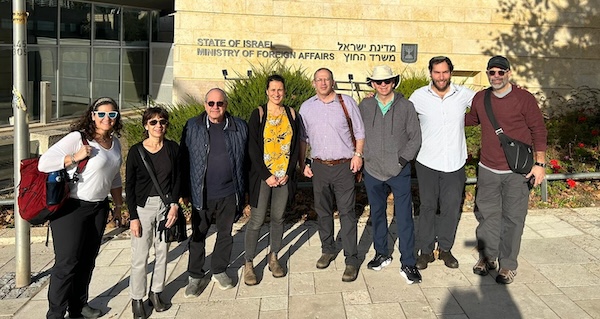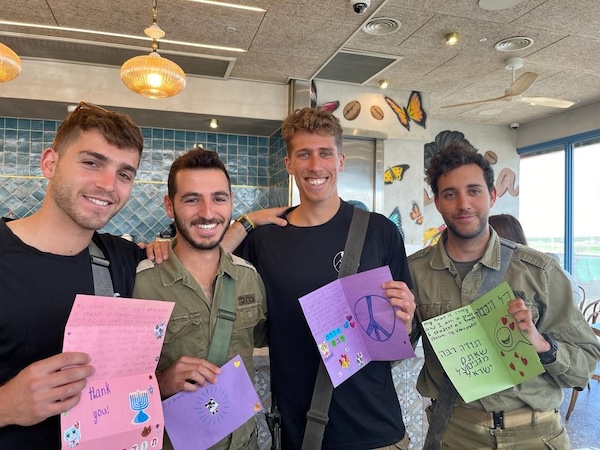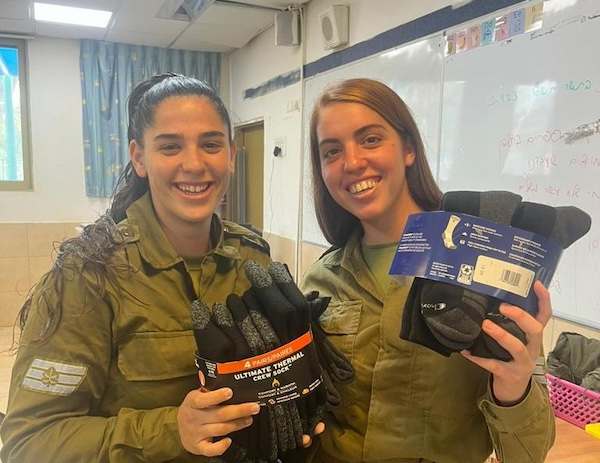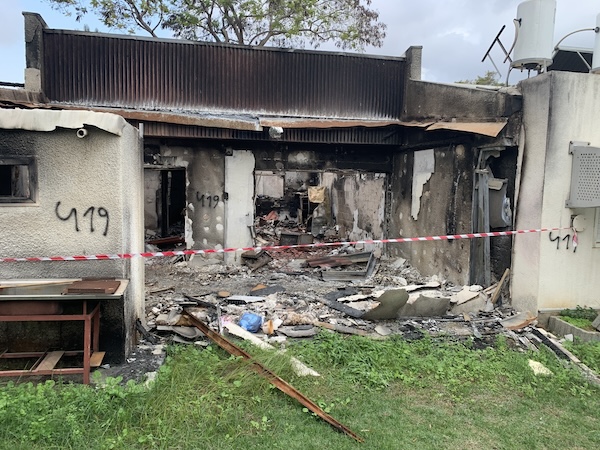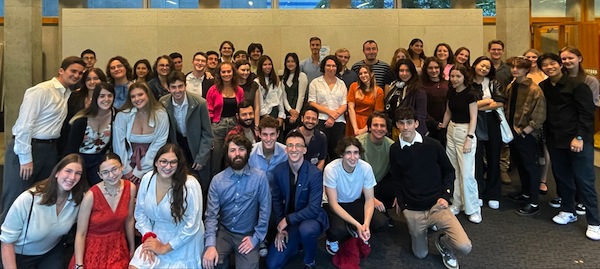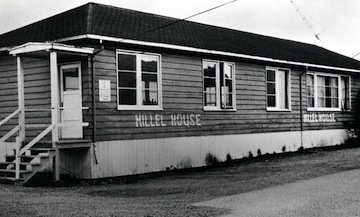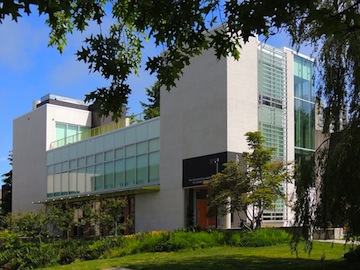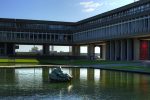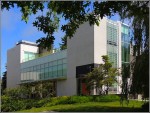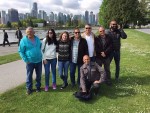Left to right: Rabbi Philip Bregman, Archbishop Michael Miller and Rabbi Jonathan Infeld. (photo by Pat Johnson)
A lesson from a Jewish professor decades ago has remained with Archbishop Michael Miller all his life.
Miller retired last month as archbishop of Vancouver – head of the region’s nearly half a million Catholics. During his last week in office, he spoke with the Independent about his relationship with the Jewish community.
The new head of the Catholic Church, Pope Leo XIV, has emphasized the need for dialogue between Catholics and Jews, and spoke almost immediately after his election as pontiff about how close the issue is to his heart. But Miller didn’t need a nudge from the Vatican. According to several Vancouver rabbis, Miller has been a stalwart friend to the community since he arrived in the city more than a decade-and-a-half ago.
When Miller was a student, he and a group of other young Catholics were in a professional setting with noted medieval scholar Julian Wasserman, who was Jewish. Someone made a comment that was antisemitic. Miller doesn’t remember the exact context, but he does remember what happened next. No one in the meeting had contested the antisemitic remark and the professor challenged them on it afterwards.
“I remember Julian expressed to us his disappointment,” said Miller. “And that stung, because it was true.”
It wasn’t as though Jews were unfamiliar to Miller. He grew up in a heavily Jewish neighbourhood in Ottawa and attended friends’ bar mitzvahs. At university and in seminary, he had several Jewish professors and he has always had an interest in Jewish topics.
As a member of the clergy, he sees interfaith dialogue as central to his role. “And the first place of dialogue, of course, is with the Jewish community,” he said, “which preexisted Christianity by at least 1,500 years, maybe 1,800 years.”
Miller was named archbishop of Vancouver in 2009. In the hierarchy of the Catholic Church, an archbishop is a bishop who leads an archdiocese. Above them are the cardinals who, among other roles, come together to elect a new pope, as they did last month.
Rabbi Philip Bregman, who leads an interfaith group called the Other People and is rabbi emeritus of Temple Sholom, has been in the city since 1980.
“It wasn’t until I met Archbishop Miller that I actually had a relationship with an archbishop,” Bregman told the Independent. “Even though Pope John XXIII [in the 1960s] had really opened the door of dialogue between Christians and Jews previously closed, it still took time before that concept actually trickled down. Archbishop Miller was the one who really walked the walk and not simply talked a talk.”
Bregman noted that he had heard the new pope speak about the necessity of Catholics renewing relationships with Jews.
“Archbishop Miller has been there for many, many years and we are tremendously grateful,” he said. “This is an incredible man, who has reached out to the Jewish community and has been there in the most open fashion, for dialogue, for consultation, for support.”
Rabbi Jonathan Infeld of Congregation Beth Israel had equally enthusiastic praise.
“His spiritual leadership, because of his forward thinking and his intelligence, goes well beyond the Catholic community and has truly touched the hearts and souls of all religious people in the city, which is really due to his leadership, his insight and his intelligence and we wish him the best of luck in retirement but are sad to see him leave,” said Infeld, who wandered the dozen or so blocks from the synagogue to the archbishop’s office to bid Miller farewell.
The archbishop’s relationship with the Jewish community was strong before Oct. 7, 2023, but has only strengthened since then. Rabbi Dan Moskovitz, Bregman’s successor as senior rabbi at Temple Sholom, has spoken publicly in appreciation of Miller’s support in the days after the terror attacks.
The lesson Miller learned from Prof. Wasserman decades earlier may have ensured he did not remain silent about what happened on Oct. 7.
“The history of the Jews in Germany before the Second World War, before there was blatant antisemitism, there was a lot of silence,” he said. “Even though we now know that a lot of people were uneasy, they were not uneasy enough to say anything. That silence is often very damning. That’s true, certainly, today as well [about antisemitism], but also on other issues where we are not so willing to speak up, [where] we are a little cowardly and we can find reasons to justify it.”
Before being appointed a bishop, Miller was a professor and later president at the University of St. Thomas, in Houston, Tex. In 2003, Pope John Paul II appointed him secretary of the Congregation for Catholic Education, in the Vatican. He came to Vancouver in 2007 as coadjutor – effectively, the assistant to the archbishop and the apparent successor.
Fluent in English, French, Spanish and Italian, Miller has authored several books on Catholic education and the papacy. He is succeeded by Archbishop Richard W. Smith, who previously served as archbishop of Edmonton.
Miller credits his team at the archdiocese office for their commitment to Catholic-Jewish dialogue, and he and Bregman both praised Ann Marie McGrath, who serves as the religion lead at St. Patrick Regional Secondary School in Vancouver. Bregman has connected McGrath with King David High School, and a new relationship is budding between those schools.
Miller has now relocated to Houston. He does not like the term “retirement,” he said, and his first few weeks have been filled with speaking engagements and other responsibilities. He will be sharing his wisdom when invited to do so.
“I’ll probably read more – I look forward to that – and, God willing,” he said, “pray a little more because not every moment will be scheduled as it has been.”



